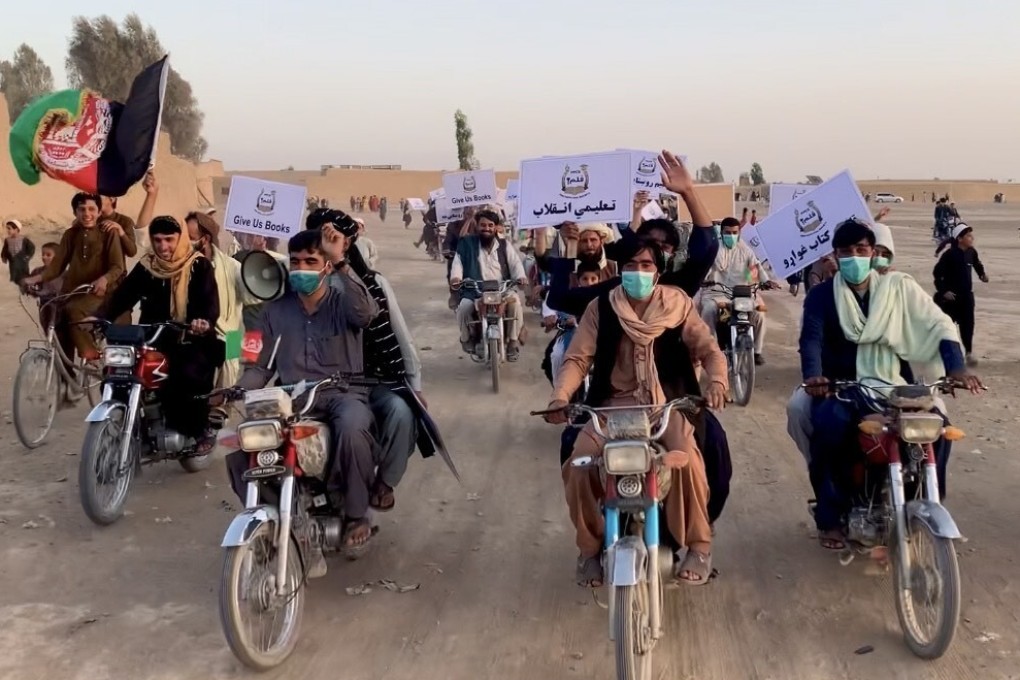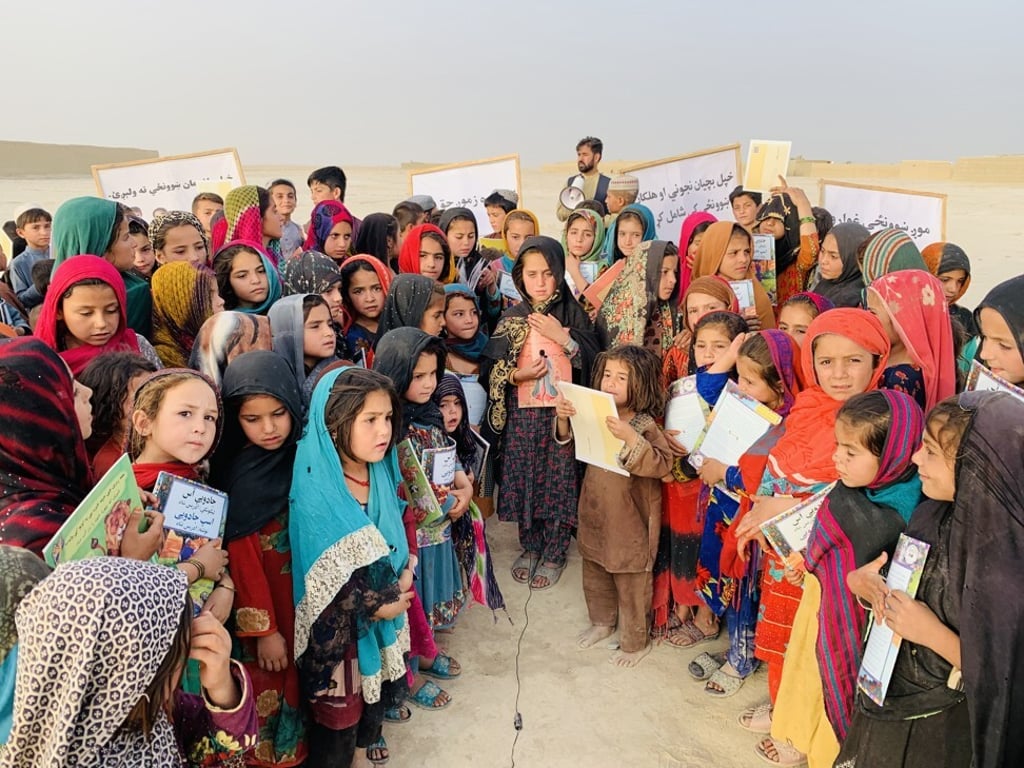Advertisement
As Taliban violence forces schools in Afghanistan to close, mobile libraries give hope to girls
- Motorcycle-riding volunteers from the Pen Path Civil Society travel across areas ravaged by fighting to distribute books and stationery
- Co-founder Matiullah Wesa says parents are reluctant to send their kids to school, as 468 children had already been killed by June
Reading Time:4 minutes
Why you can trust SCMP
1

For 11-year-old Husna, books are her only source of happiness. Her school in Wat village, 3km from the Spin Boldak district in Afghanistan that is now under Taliban control, is closed for summer holidays until September. But no one knows for sure when it will reopen, due to the clashes between Afghan nationalist forces and the Islamist group that have ensued since troops from the United States began withdrawing in May.
Now, Husna’s only ray of hope is the mobile library run by the Pen Path Civil Society, a non-governmental organisation whose motorcycle-riding volunteers travel across areas ravaged by fighting to distribute books and stationery to children.
“I am very happy that I can at least continue to study,” she said, adding that she wants to grow up to be a doctor.
Advertisement
In Afghanistan, where more than 60 per cent of the 3.7 million out-of-school children are girls, Pen Path’s mobile libraries – which include books on history, geography, and children’s fiction in Pashto and Dari, the country’s official languages – continue to educate girls such as Husna.
The Taliban is notorious for its violence and discrimination towards women. Besides harsh restrictions on their appearance and behaviour, the group also banned most women from receiving more than a primary school education while it ruled the country.
Advertisement
Advertisement
Select Voice
Select Speed
1.00x
